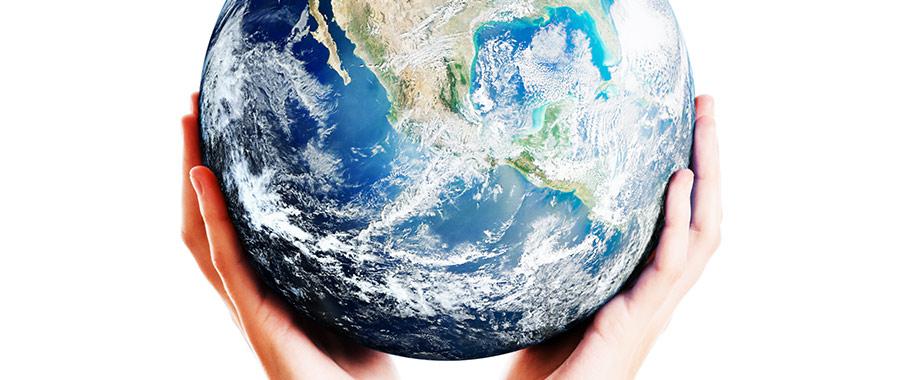The modern world faces an array of challenges that seem insurmountable: geopolitical tensions, environmental degradation, economic disparity, and social disunity. As mankind is entrenched in endemic strife, the Bahai teachings of loyalty to humanity offer a compelling paradigm shift. This principle advocates for a broader allegiance, transcending tribalism and ideological confines, which may ultimately serve as a panacea for some of humanity’s most pressing issues. This article delves into the various dimensions of this doctrine and articulates its potential to engender global harmony.
At the core of Bahai philosophy lies the unwavering belief in the oneness of humanity. This tenet posits that all human beings, regardless of nationality, religion, or race, are interconnected and share a common destiny. Recognizing the intricate tapestry of human experience fosters empathy and compassion, qualities that are paramount in cultivating broader societal loyalty. The challenge, however, is anchored in cultivating an understanding that one’s allegiance should not merely be confined to familial or nationalistic bounds.
Historically, individuals have displayed steadfast loyalty to their nation or tribe, often reinforcing divisions and perpetuating hostility. Such affiliations encourage an insular mindset that exacerbates conflict rather than building bridges. However, the Bahai perspective invites a radical realignment of allegiances, urging adherents to embrace a loyalty that extends to all of humanity. This evolution in perspective is not only desirable but indispensable for resolving global dilemmas that are inherently transnational in their nature.
A salient observation regarding this theme is the dichotomy between temporary affiliations and enduring commitments. Loyalty to a nation-state may yield short-term benefits such as belonging and security but often leads to the marginalization of others. Conversely, loyalty to humanity engenders a sense of shared responsibility, moral clarity, and collective action aimed at upliftment. Just as we instinctively protect our own family, the Bahai teachings advocate for a similar protective instinct directed towards the entirety of the human family.
The ethical ramifications of such a shift in allegiance cannot be overstated. The Bahai call to action implores individuals to transcend self-interest and adopt an ethos of sacrifice for the greater good. In this regard, the principles of cooperation, consultation, and collective problem-solving become instrumental. For instance, in addressing climate change, a problem that cannot be solved within geopolitical silos, an allegiance to humanity encourages collaborative innovation and strives for equitable solutions that benefit the entire planet.
The repercussions of loyalty to humanity extend beyond ethical considerations; they reposition the discourse surrounding conflict resolution. Traditional mechanisms often stem from a nationalistic perspective, focusing on the interests of a select few rather than the collective welfare. By contrast, embracing the unity of human experience invites holistic discussions that appreciate the stakes of all parties involved. Such an approach gives rise to negotiation frameworks that prioritize empathy and understanding, invaluable tools in an increasingly polarized world. Evidence of this can be seen in peace-building initiatives that employ dialogue and community engagement to heal deep-seated divides.
Furthermore, educational paradigms play a crucial role in embedding these teachings within societal frameworks. The cultivation of a consciousness that prioritizes inclusivity and shared human experience can only thrive if integrated within educational curricula worldwide. A modification of learning environments to highlight interdependence will reinforce the significance of unity and cooperation, ultimately shaping future leaders with a global mindset. An education rooted in the principles of loyalty to humanity equips individuals with the intellectual and moral tools necessary to navigate complexities and drive progress in a multifaceted world.
One must also consider the spiritual dimensions underpinning this allegiance. The Bahai teachings argue that humanity’s collective evolution hinges on the acknowledgement of a higher purpose—recognizing that all people are part of a singular tapestry woven by divine intent. Embracing this spiritual narrative can promote a sense of interconnectivity that mitigates parochial attitudes. By fostering a worldview that sees divinity reflected in every person, individuals may cultivate genuine respect and love for their fellow beings, enabling them to act from a place of unity rather than division.
A wider allegiance to humanity further extends to the realms of social justice and equality. The Bahai teachings advocate for the dismantling of all forms of prejudice and oppression. When one is loyal to humanity as a whole, the injustices faced by any individual or community become personal and pertinent. This perspective fosters activism rooted in empathy and solidarity, encouraging individuals to advocate for the rights and dignities of all. The ongoing struggles for racial equality, gender parity, and economic justice exemplify endeavors rooted in this commitment to broader loyalty.
In conclusion, the Bahai principle of loyalty to humanity prompts a radical rethinking of allegiance—urging individuals and societies to expand their commitments beyond insular identities. As the myriad challenges confronting the world intensify, embracing a collective sense of responsibility becomes not just a noble aspiration but a pragmatic necessity. By nurturing a deeper allegiance that encompasses all humanity, individuals may contribute to a more harmonious world—one that is anchored in unity, cooperation, and a shared destiny. In this grand mosaic, each act of compassion and recognition of our commonality adds to the richness of human experience, ultimately illuminating the path forward through even the most arduous circumstances.
